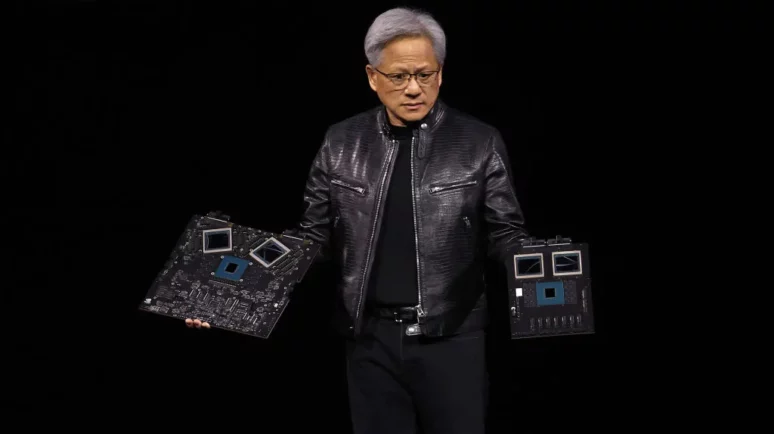TSMC Secures $11.6B for US Chip Plants: Who’s Getting Remaining $18.7B?

TSMC has been granted $11.6 billion by the US government to build a third Arizona factory where it will produce its N2 chips. l Source: Long Wei/VCG via Getty Images
Key Takeaways
- The US is investing heavily in TSMC to build new chip factories in Arizona.
- TSMC’s Arizona fab will be their third in the state and focus on producing the most advanced 2-nanometer chips.
- Under the Chips and Science Act, there is still $18.7 billion to allocate.
The United States is set to provide Taiwan Semiconductor Manufacturing Co. (TSMC) with a substantial investment totaling $6.6 billion in grants and up to $5 billion in loans. This initiative aims to support the world’s leading chipmaker in establishing new manufacturing facilities in Arizona.
It’s part of US President Joe Biden’s broader strategy to enhance domestic production of crucial technology. Under the Chips and Science Act, there is still $18.7 billion to allocate, and Intel and TSMC may be the largest companies to benefit.
TMSC Third Lab To Come In Arizona
On Tuesday, April 9, 2024, shares of TSMC surged by as much as 3.7%, marking their most significant increase in over a month. This surge followed the announcement of a preliminary agreement by the United States on Monday, wherein TSMC will embark on constructing a third factory in Phoenix, Arizona. This addition will complement the two existing facilities in the State, which are slated to commence production in 2025 and 2028. The collective investment package aims to facilitate over $65 billion in investments across the trio of plants. And it will position TSMC as the primary chipmaker for industry giants like Apple and Nvidia.
The forthcoming third fabrication site, or fab, will leverage cutting-edge 2-nanometer process technology and is projected to be operational before the decade draws to a close. According to US Commerce Secretary Gina Raimondo, the development of 2nm chips holds paramount significance for advancing technologies such as artificial intelligence and military applications.
Raimondo emphasized: “For the first time ever, we will be manufacturing the most advanced semiconductor chips at scale right here in the United States of America, employing American workers.”
However, it will take several months before TSMC can access the promised funding. The company will undergo a due diligence phase before finalizing a binding agreement. Disbursement of funds will be contingent upon meeting construction and production milestones, with provisions for potential recapture if TSMC fails to fulfill its obligations.
What Will TSMC Produce?
At the upcoming Arizona facility, TSMC will spearhead the production of its groundbreaking two-nanometer (2nm) chips. These chips boast processing speeds surpassing those of current market leaders, the three-nanometer (3nm) chips, by an impressive margin of 10% to 15%.
TSMC’s 2nm process, known as N2, harnesses the power of Nanosheet transistor structures. It promises to redefine industry standards for both density and energy efficiency. Anticipated to kick off mass production in 2025, N2 will lead the technological forefront.
A pivotal component of N2, the backside power delivery solution, will debut in the latter half of 2025, with mass production slated for 2026. This innovation is tailor-made for the High-Performance Computing (HPC) sector, promising enhanced performance and efficiency.
The soaring demand for 2nm processes, surpassing that of 3nm processes, has prompted widespread collaboration with TSMC by AI innovators globally. The applications of this cutting-edge technology are primarily concentrated in high-performance computing (HPC) and the smartphone industry. It reflects the ever-evolving landscape of technological advancement.
The Chips And Science Act
TSMC’s recent award is a major milestone in President Biden’s push to strengthen the US semiconductor industry. It is in line with the 2022 Chips and Science Act. It’s one of the largest awards under the program, which allocated $39 billion in grants. It also provided loans and guarantees totaling $75 billion.
These incentives aim to incentivize semiconductor companies to establish manufacturing facilities within the United States. It also aims to counter a trend of offshore production that has persisted for decades.

Already, Intel has secured a preliminary agreement for nearly $20 billion in grants and loans, while Samsung Electronics will receive a grant exceeding $6 billion. Additionally, the Commerce Department has conferred three awards to companies specializing in older-generation chips. It is on the brink of unveiling a multibillion-dollar package for Micron Technology in the forthcoming weeks.
Since Biden assumed office, corporations have pledged upwards of $200 billion in investments within the US. In particular, key hubs materialized in Arizona, Texas, and New York.


